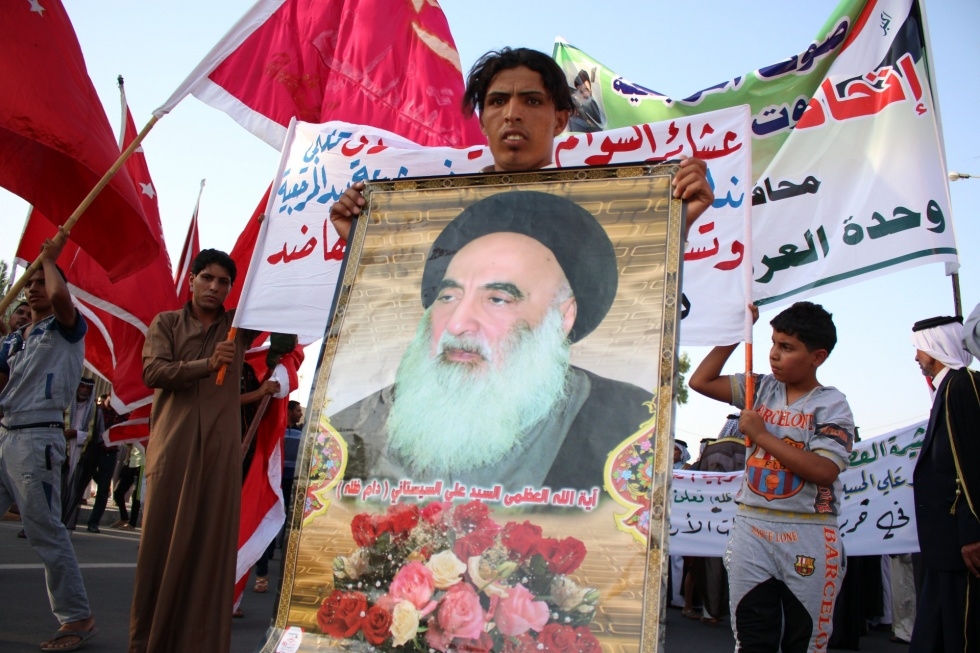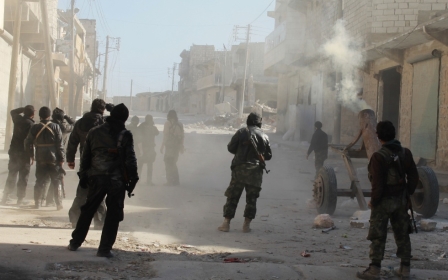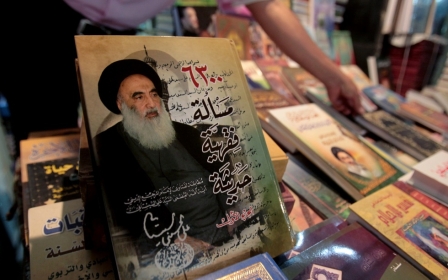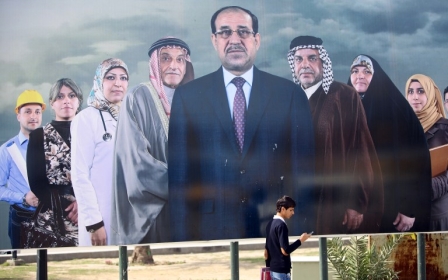Iraq's top religious leader condemns parliamentary 'disunity'

Grand Ayatollah Ali al-Sistani has criticised Iraq’s lawmakers for disunity and for failing to pick a speaker at this week’s opening session of parliament.
"The failure to elect a head of parliament and their deputies before it adjourned was a regrettable failure," Sistani's spokesman Ahmed al-Safi said during a Friday prayer sermon in Karbala.
"The speeding up of forming a government within the constitutional framework with wide national consensus is of the utmost importance," Safi added.
Sistani’s status as the most important Shiite religious figure in the country gives him more authority than any given politician and re-emphasises the seriousness of the situation for many Iraqis.
The failure highlights growing fears about a potential breakup of Iraq, as the Kurdistan region pushes ever closer to holding an independence referendum.
Iraq’s Sunni Parliamentary Speaker Usama al-Nujayfi had said he would make a "self-sacrifice" by not seeking another term in his post, if Prime Minister Nuri al-Maliki also agrees to rule out a third term in office.
Deputies need to choose a speaker and then elect a president before they can move on to the formation of a government, and the key question of a possible third term for Prime Minister Nuri al-Maliki.
Iraq held parliamentary elections at the end of April, but has yet to form a government.
The elections were won by Maliki’s coalition with 92 seats but it fell short of an overall majority meaning Iraq will be governed by a coalition government.
"I will not be a candidate for parliamentary speaker for the benefit of the people. If we target change, we should make some self-sacrifices," said Nujayfi, the head of largest Sunni Arab bloc who told a press conference in Baghdad on Thursday.
Since the downfall of Saddam Hussein, Iraq’s government has been structured along sectarian lines, usually requiring a Shia prime minister, a Sunni speaker and a Kurdish president.
UN envoy Nickolay Mladenov has warned that a failure to form a government would lead to "Syria-like chaos".
Iraqi security forces have been unable to turn back Sunni militants led by the Islamic State as they advanced since June 10 from the north and west of the country towards the capital Baghdad.
Kurdish Peshmerga forces took the oil-rich city of Kirkuk, a disputed territory between Kurdish administration and the federal government, on June 12 after Iraqi security forces withdrew as Sunni rebels led by IS drew close to the city.
Nujayfi has demanded the resignation of Maliki as a necessary step towards stability.
"We discussed with the Kurdistan Democratic Party and others about changing the politics that brought Iraq to the brink of division and … changing the prime minister as a first step."
Maliki has often been criticised for ruling at the expense of the country’s Sunni minority and enflaming sectarian tensions in the country.
On Friday he accounced he was on seeking a third term in office, defying growing domestic and foreign pressure for him to step aside.
"I will never give up on my candidacy for the post of prime minister," Maliki said in a statement.
Writing in the Washington Post on Thursday, Ali Khedery a former US-Iraq diplomat and personal friend of Maliki, said he realised as early as 2010 that the US decision to back Maliki had been a mistake.
“I had come to realize that if he remained in office, he would create a divisive, despotic and sectarian government that would rip the country apart and devastate American interests,” he wrote.
“Iraq is now a failed state, and as countries across the Middle East fracture along ethno-sectarian lines, America is likely to emerge as one of the biggest losers of the new Sunni-Shiite holy war, with allies collapsing and radicals plotting another 9/11.”
New MEE newsletter: Jerusalem Dispatch
Sign up to get the latest insights and analysis on Israel-Palestine, alongside Turkey Unpacked and other MEE newsletters
Middle East Eye delivers independent and unrivalled coverage and analysis of the Middle East, North Africa and beyond. To learn more about republishing this content and the associated fees, please fill out this form. More about MEE can be found here.




